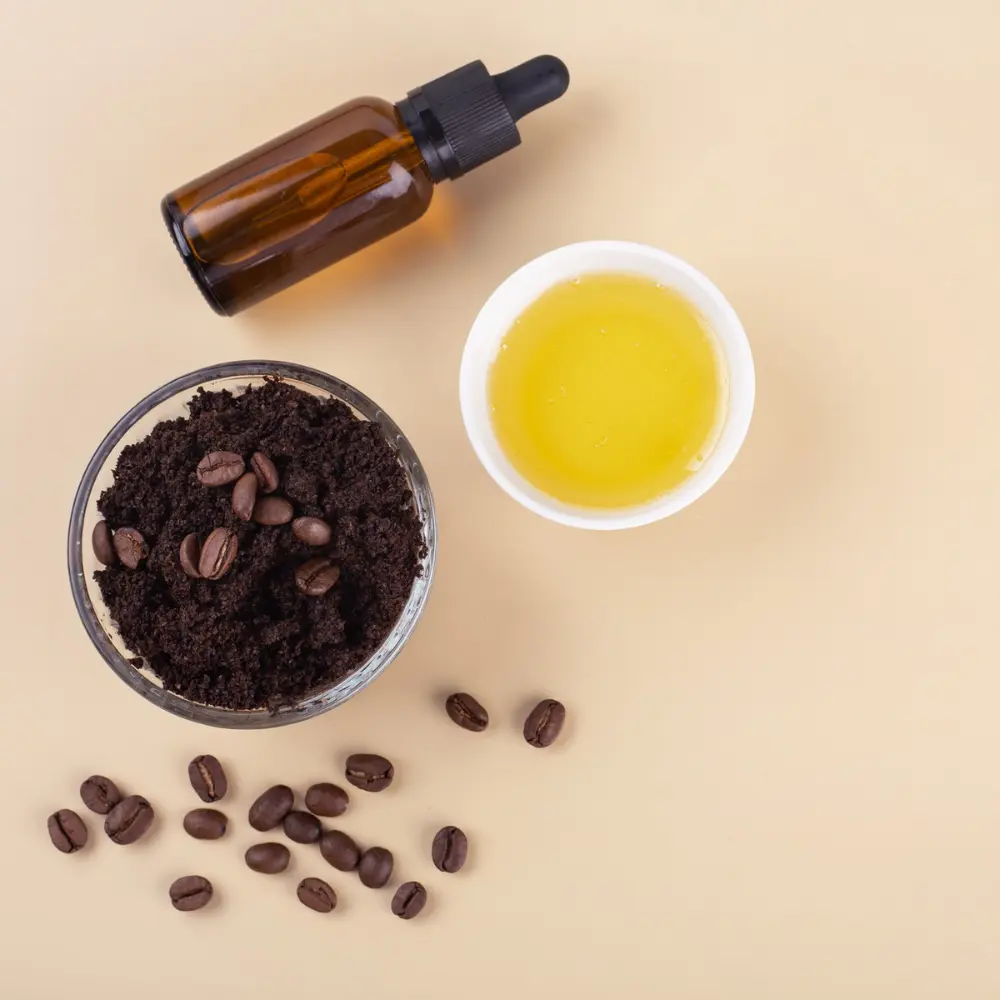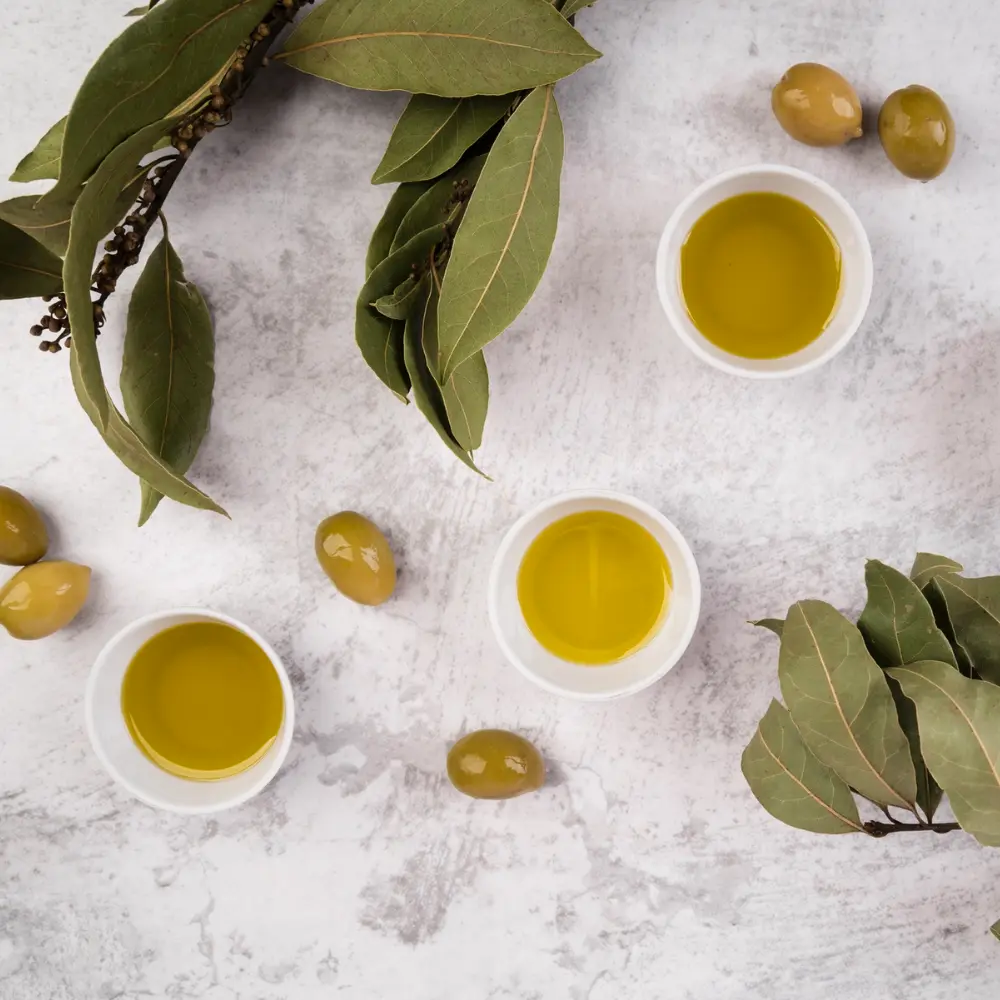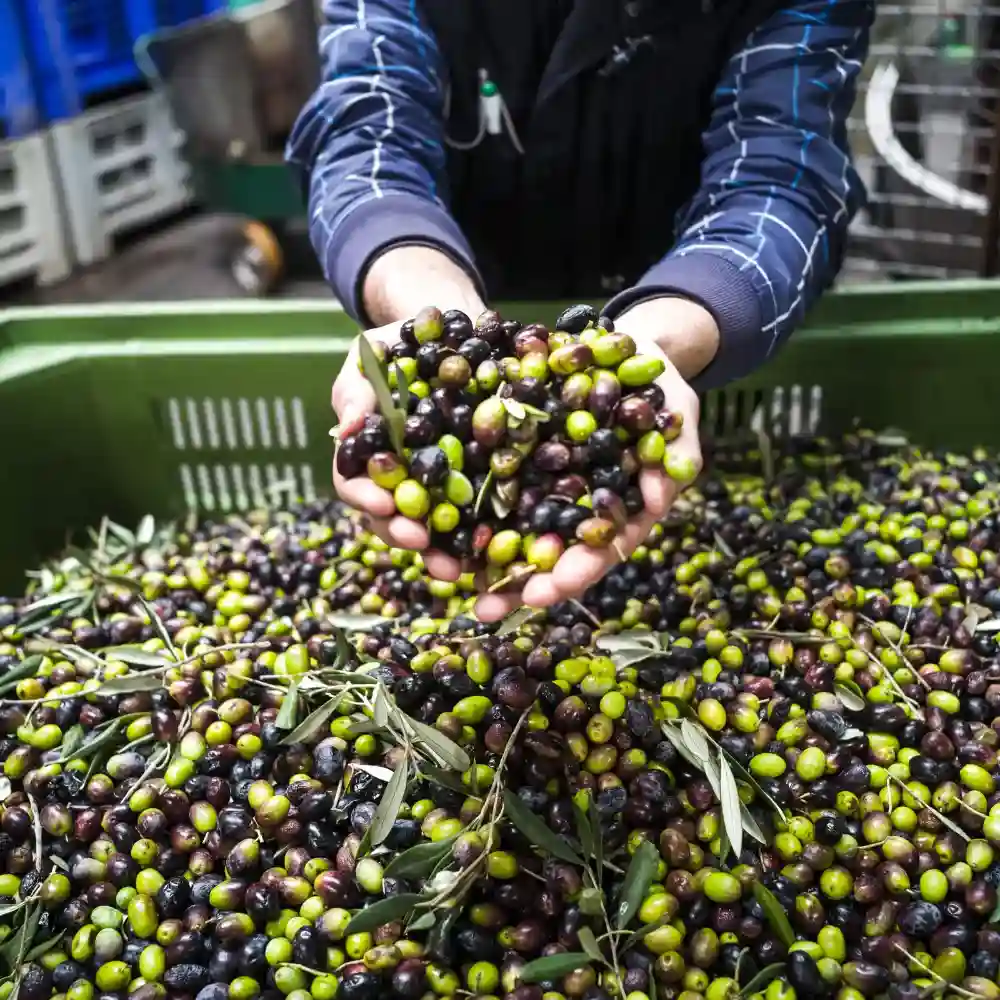The world of culinary arts and food science never ceases to surprise. As our quest for health and wellness continues, we come across the most unexpected pairings – some of which not only enhance our palate but also come with surprising health benefits. Among such intriguing concoctions is the recent trend of mixing olive oil in coffee.
But why put olive oil in coffee? This question has sparked curiosity among coffee connoisseurs and health enthusiasts alike, leading to a riveting exploration of its taste and health implications. In this comprehensive guide, we delve into the origin of this unusual combination, the science behind it, its unique taste, and the health benefits that it brings to the table. We aim to provide a holistic understanding of this innovative trend that’s brewing a storm in the world of coffee.
So, as we embark on this journey, sit back with your favorite brew, and let’s discover the unexpected fusion of these two amazing ingredients.
Olive Oil and Coffee: Key Takeaway
- A Culinary Fusion: Olive oil in coffee is a growing trend that merges the comforting familiarity of coffee with the rich complexity of olive oil, resulting in a beverage that offers a unique taste experience and potential health benefits.
- Understanding the Science: The combination of the two delivers a nutrient-rich beverage high in antioxidants. It also facilitates enhanced absorption of nutrients, offers sustained energy release, and could potentially offer cardiovascular benefits.
- Preparing Your Brew: The key to a satisfying cup of olive oil-infused coffee lies in finding the right balance between the two ingredients. High-quality coffee and olive oil, along with a starting ratio of one teaspoon of oil per cup of coffee, are recommended for the best taste experience.
- Sustainability and Ethical Considerations: As consumers, we play a vital role in promoting sustainability and ethical practices in the coffee and olive oil industries. Conscious sourcing of these products supports local farmers and producers and ensures a healthier planet.
The Emergence of Olive Oil in Coffee

This integration is a relatively recent phenomenon that has piqued the interest of culinary enthusiasts and health experts. To understand this novel trend, it’s essential to look at the history of these two significant ingredients separately and the circumstances leading to their convergence.
The History of Olive Oil and Coffee Separately
Olive oil and coffee have both played a pivotal role in human civilization and gastronomy, with histories that span thousands of years.
- Olive Oil: One of the most ancient food products, olive oil’s origins can be traced back to the Mediterranean region between 8,000 and 6,000 years ago. Revered for its nutritional value, it has been a cornerstone of Mediterranean diets and is celebrated for its numerous health benefits, such as reducing heart disease risk and supporting overall health.
- Coffee: Originating from Ethiopia around the 9th century, coffee quickly gained popularity for its stimulating properties. (1) The love for coffee spread across the globe, and it soon became a staple beverage, cherished not only for its taste but also for its ability to boost energy levels and improve focus.
The Birth of the Olive Oil in Coffee Trend
The idea of combining the two might initially seem unconventional, but this trend didn’t just pop out of nowhere. It emerged as part of a broader movement to explore the potential health benefits of combining various foods. Olive oil, with its high monounsaturated fat content, has been found to slow the body’s absorption of caffeine, providing a longer-lasting energy boost without the crash. Additionally, the flavor profile of olive oil complements coffee surprisingly well, lending a unique depth to the overall taste.
Key Figures and Influencers Driving the Trend

This fusion of ingredients has been endorsed and promoted by a number of notable figures and influencers in the culinary and health world.
- Chefs: Renowned chefs such as Heston Blumenthal have experimented with the combination, providing it with a touch of culinary validation.
- Health and Fitness Influencers: The peculiar trend is gaining traction among fitness enthusiasts and influencers who appreciate the sustained energy boost and potential health benefits.
- Coffee Experts: Some coffee aficionados and baristas are also exploring this trend, curious about how olive oil affects coffee’s taste and body.
This unexpected yet fascinating convergence of the two ingredients is certainly making waves in the gastronomic world. It’s an exciting exploration of culinary boundaries, health benefits, and taste profiles, set against the backdrop of our never-ending love for a good cup of coffee.
The Science Behind The Mixture
Unraveling the science behind this concoction illuminates how these two ingredients interact to create a delightful beverage that goes beyond taste and offers potential health benefits. This section will break down the nutritional profile of this combination, explore the health benefits, and address any prevalent myths and misconceptions.
The Nutritional Breakdown

A closer look at the nutritional profile of the two reveals why this unusual combination is capturing attention:
- Coffee: Coffee is packed with antioxidants, which are beneficial for overall health. It also contains small amounts of essential nutrients, such as magnesium, niacin, and potassium.
- Olive Oil: A key player in the Mediterranean diet, olive oil is a good source of monounsaturated fats, which can improve heart health. It’s also rich in antioxidants and vitamins E and K. (2)
When combined, these two ingredients offer a beverage that’s nutrient-dense and high in antioxidants, making it more than just an energy booster.
Understanding the Health Benefits of Olive Oil in Coffee

Exploring the idea of enhancing your coffee with olive oil might seem unconventional, but this surprising combination is underpinned by the potential benefits of the healthy fats found in the oil. By acting as a slow-release agent for caffeine, olive oil prolongs its effects while facilitating a smoother assimilation process. Let’s dive into the multiple benefits this unusual pairing can bring:
- Moderating Coffee Consumption: Many of us are prone to overindulging in coffee. The introduction of healthy fats into your coffee can extend the effects of caffeine, reducing the impulse to quickly reach for another cup.
- Balancing Acidity: Coffee can sometimes be acidic, potentially upsetting your digestive system. The addition of fats from olive oil helps counteract this acidity, aiding digestion and possibly alleviating associated symptoms like acid reflux or stomach discomfort.
- Enduring Energy Levels: The fats in olive oil slow down digestion when consumed with other food or drink, including coffee. This gradual process delays the absorption of caffeine, extending its stimulating effects. This sustained energy boost can be particularly beneficial if you enjoy coffee before physical activities or a busy day.
- Potential Breakfast Alternative: This combination provides an alternative to the traditional, often carb-heavy breakfast. Instead of reaching for toast or cereal, why not kick-start your day with nutritious fats?
Embracing the mixture can enrich your daily routine with a unique twist and contribute positively to your overall well-being.
Coffee – A Rich Reservoir of Benefits

Coffee, a beverage adored worldwide, brings numerous benefits, and when combined with olive oil, these benefits can be amplified. Here are a few worth noting:
- Coffee is a rich source of antioxidants, which can protect against oxidative stress and inflammation.
- It can improve cognitive function, enhancing alertness and focus.
- Regular coffee consumption may lower the risk of several diseases, including type 2 diabetes and Parkinson’s disease.
- Coffee can boost metabolic rate, aiding weight loss efforts.
- By mixing coffee with olive oil, you can potentially improve nutrient absorption, balance coffee’s acidity, and achieve prolonged energy levels.
Olive Oil – The Liquid Gold

The virtues of olive oil stand strong individually too. Referred to as ‘liquid gold,’ extra virgin olive oil can bestow numerous health benefits:
- As mentioned before, olive oil is rich in monounsaturated fats, known to promote heart health by enhancing vasodilation and reducing the risk of cardiovascular disease.
- It possesses anti-inflammatory properties due to a compound called oleocanthal, which can potentially help combat chronic diseases.
- It aids digestion by lubricating the intestinal tract and reducing gastric acid production.
- Olive oil might contribute to cancer prevention through the presence of oleocanthal and the antioxidant vitamin E.
- With essential vitamins like E and K, olive oil can boost skin and hair health.
- Olive oil contributes to bone health, reducing the risk of hip fractures and improving bone density.
- Olive oil has been found to lower glycemic response, which can be especially beneficial for individuals with Type 1 diabetes.
Considering the multitude of health benefits offered by olive oil, it makes an enticing proposition to include it in your daily coffee ritual.
Potential Downsides of Introducing Olive Oil to Your Coffee

While the unique combination carries several potential benefits, it’s essential to consider some potential drawbacks:
- Taste Alteration: Olive oil changes the flavor profile of your coffee. If you cherish the traditional taste of coffee, you might find this alteration less appealing.
- Digestive Discomfort: Some people might experience stomach discomfort when consuming fats, such as olive oil, on an empty stomach. Therefore, if you’re having olive oil-infused coffee first thing in the morning, be aware of this possibility.
- Calorie Content: While olive oil is a source of healthy fats, it’s also high in calories. Those monitoring their caloric intake should keep this in mind.
- Quality Matters: The quality of olive oil can significantly impact the health benefits you derive from it. Not all olive oils are created equal; hence, it’s important to ensure that you’re using high-quality, extra-virgin olive oil.
- Potential Allergies: Although rare, some people may have an allergy to olive oil. If you’re allergic to olives, you might experience adverse reactions when consuming olive oil in your coffee. Always be aware of your dietary restrictions and consult with a healthcare professional if you’re unsure.
Being aware of these potential disadvantages can help you make an informed decision about whether mixing the two is the right choice for you.
Debunking Myths and Misconceptions

As with any new food trend, the practice of adding olive oil to coffee has had its fair share of myths and misconceptions. Here are some of the most common ones:
- Myth: The Mixture Causes Weight Gain: While olive oil is high in calories, moderate consumption as part of a balanced diet is not associated with weight gain. It’s also worth noting that the quantity of olive oil used in coffee is usually quite small.
- Myth: Olive Oil Makes Coffee Oily: The right amount of olive oil blends well with coffee and does not make it oily or greasy. The key lies in finding the right balance.
Understanding the science behind this trend can help us appreciate this unique combination’s potential benefits and dispel any unfounded myths or misconceptions.
Choosing the Right Olive Oil for Your Coffee Adventure

As you venture into the world of olive oil-infused coffee, one of the most critical decisions you’ll make is selecting the type of olive oil to use. The quality and flavor of the oil can significantly impact your experience. Here are some tips to guide your selection:
- Opt for Extra Virgin Olive Oil: Extra virgin olive oil (EVOO) is the highest quality olive oil available. It’s unrefined, meaning it retains more of the olive’s natural flavors and health benefits compared to more processed varieties. EVOO is an excellent choice for coffee because its flavors can complement the coffee without overpowering it.
- Consider the Source: The origin of the olive oil can affect its flavor. For example, Spanish olive oils tend to be fruity and nutty, while Italian olive oils might be more grassy or peppery. Try different varieties to find one that best suits your taste preferences.
- Pay Attention to Freshness: Olive oil is best used within a year or two of its harvest date. Look for the harvest date on the label to ensure you’re getting fresh oil.
- Beware of “Light” Olive Oils: Despite what their name might suggest, “light” olive oils aren’t lower in calories or fat. Instead, they’re more heavily processed and lack the flavor and health benefits of EVOO.
In summary, the quality of the olive oil you choose can make or break your coffee experience. So, select wisely, keeping your personal taste preferences in mind.
The Ideal Olive Oil for Elevating Your Coffee Experience

Selecting the right olive oil for your coffee not only enhances its flavor but also boosts its nutritional profile. The choice, however, depends on various factors such as the quality, origin, and flavor of the olive oil.
Experience the Delicate Balance of Pompeian Smooth Extra Virgin Olive Oil
- Farmer-crafted
- Smooth flavor
- Imported, first cold pressed extra virgin olive oil
- Perfect for soups, salads, stir-frys and marinades
- Quality since 1906 from the Olive Oil People
One particular olive oil brand stands out for its compatibility with coffee – the Pompeian Smooth Extra Virgin Olive Oil. This oil is renowned for its superior quality and exquisite flavor, making it a popular choice among culinary enthusiasts. Here are three key reasons why it’s a good fit for your coffee:
- Authenticity and Quality: Crafted by Pompeian’s expert olive farmers and craftsmen, this oil is first cold-pressed, ensuring maximum flavor retention and quality. The whole process is carefully controlled, from olive grove to table, resulting in an authentic, high-quality product.
- Milder Flavor: The Pompeian Smooth Extra Virgin Olive Oil is known for its relatively mild taste, making it an ideal addition to coffee. It enriches the coffee’s flavor without overshadowing it, making for a harmonious blend.
- Nutrition Packed: With 14g of total fat, including 10g of heart-healthy monounsaturated fat per serving, this oil is a nutritional powerhouse. It adds a healthy dose of good fats to your coffee, enhancing its health benefits without contributing any sodium, carbohydrates, or protein.
Choosing the right oil can enhance your coffee experience by leaps and bounds. The Pompeian Smooth Extra Virgin Olive Oil, with its delicate balance of flavor and nutrition, proves to be a commendable choice.
The Taste and Preparation of Olive Oil in Coffee
One of the first questions that comes to mind when contemplating the addition of olive oil to coffee is: What does it taste like, and how do I prepare it? Here, we’ll explore the taste profile of this intriguing fusion and guide you on how to incorporate olive oil into your coffee successfully.
What Does Olive Oil in Coffee Taste Like?

Adding olive oil to coffee brings a surprisingly delightful complexity to the beverage. It doesn’t merely make your coffee oily as one might expect. Instead, it adds a subtle richness and smoothness to the coffee, rounding out the flavor profile and softening some of the coffee’s acidic notes. Good quality olive oil has a hint of fruitiness, grassiness, or even spiciness, which can add new layers of flavor to your brew.
How to Prepare Olive Oil in Coffee
Preparing the two is straightforward and doesn’t require any fancy equipment. Here’s a simple recipe to get you started:
- Brew your coffee as you usually would: This could be a regular drip, French press, espresso, or any other brewing method of your choice.
- Add olive oil: Once the coffee is ready, add about one teaspoon of high-quality extra virgin olive oil for each cup.
- Stir and enjoy: Stir well to ensure the oil is properly blended with the coffee. Now, sit back and enjoy the unique flavor profile of your olive oil-infused coffee.
You can adjust the amount of olive oil to taste. Some people prefer a lighter touch, while others enjoy the flavor of a bit more olive oil. You can also add an additional tablespoon of grass-fed butter or ghee to add a bit of creaminess to your brew.
For more information about this combination, read our article on Butter in Coffee
Perfecting the Olive Oil to Coffee Ratio
The key to a satisfying cup of lies in finding the right balance between the two ingredients. Too little olive oil and you won’t get the desired flavor and smoothness. Too much, and the coffee might start tasting greasy.
A good starting point is a teaspoon of oil for each cup of coffee. From there, you can adjust according to your personal taste. Remember that the quality of the olive oil also plays a significant role in the final taste. Use high-quality extra virgin olive oil for the best results.
The combination is a fascinating exploration of flavor, texture, and culinary creativity. So why not give it a try and experience this unique taste sensation for yourself?
Ethical and Sustainability Considerations
As the consumption of this peculiar mixture, it’s crucial to consider the ethical and sustainability implications of this trend. By consciously sourcing sustainable coffee and olive oil, consumers can help create positive impacts on local farmers and producers while also shaping the future of this innovative trend.
Sourcing Sustainable Coffee and Olive Oil

In today’s world, conscientious consumption is more important than ever. When choosing coffee and olive oil:
- Coffee: Opt for coffee that’s certified fair trade, organic, or shade-grown. These labels indicate that the coffee is produced in ways that are environmentally friendly and socially equitable.
- Olive Oil: Choose olive oil from companies that practice sustainable farming methods, minimize water use, and maintain biodiverse ecosystems.
Remember, every purchase is a vote for the kind of world you want to live in. Make sure to support businesses that prioritize ethical and sustainable practices.
The Impact on Local Farmers and Producers
The trend can have profound effects on local farmers and producers. On one hand, it has the potential to increase demand for both coffee and olive oil, providing economic benefits. On the other hand, it underscores the importance of ensuring that these products are sourced ethically and sustainably.
Paying fair prices to farmers, encouraging organic farming methods, and preserving biodiversity are all key factors in supporting local communities and safeguarding our planet.
Future of the Trend in Sustainable Perspective
As we look forward, the future of this trend hinges on its sustainability. For this practice to grow ethically and responsibly, it’s crucial to emphasize sustainable sourcing, fair trade principles, and environmentally friendly practices.

The trend also offers a unique opportunity to spotlight the important work of coffee growers and olive oil producers worldwide. By making conscious choices, consumers can ensure that their new favorite beverage not only delights their palate but also supports a sustainable and equitable food system.
By shedding light on these considerations, we hope to encourage responsible consumption of this mixture, ensuring that this innovative trend can continue to thrive in harmony with our planet and its people.
Conclusion
As we’ve delved into the world of olive oil in coffee, we’ve uncovered a trend that marries the rich, comforting familiarity of coffee with the subtle complexity of olive oil. This unique combination not only offers a fresh twist on our daily coffee ritual but also has potential health benefits worth exploring.
From the historical roots of coffee and olive oil to the science behind their combination, we’ve highlighted the nutritional values and dispelled common myths. We’ve guided you through the taste experience you can expect and provided you with a simple recipe to try this trend at home.
We’ve also considered expert opinions, drawing insights from celebrity endorsements, the scientific community, and coffee connoisseurs. Lastly, we delved into the essential topic of sustainability, reminding us that conscious consumption is vital in the world of food and beverages.
In summary, this combination of ingredients represents an innovative fusion of tradition and novelty, health and enjoyment, all within a single cup. It’s a testament to our unending quest for culinary creativity and our love for experimentation. So, as you venture into this intriguing world of olive oil-infused coffee, remember to sip, savor, and enjoy the journey as much as the destination.
FAQ
How does this combination taste?
Olive oil in coffee adds a subtle richness, softening the coffee's acidity and introducing unique flavors of fruitiness, grassiness, or even a hint of spice.
What is the correct ratio?
A good starting point is one teaspoon of olive oil for each cup of coffee, but you can adjust this ratio to suit your personal taste.
What are the scientific benefits of olive oil in coffee?
Scientifically, combining olive oil and coffee can increase antioxidant intake, facilitate better nutrient absorption, provide a sustained energy release, and potentially offer cardiovascular benefits.
Are there ethical considerations when sourcing ingredients?
Yes, choosing fair trade, organic, or shade-grown coffee and olive oil from companies that practice sustainable farming methods is crucial for ethical and sustainable consumption.













